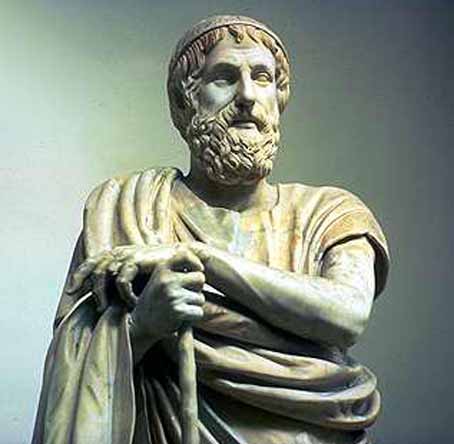
Course Description
This course allows you to explore the beliefs and achievements of the classical world, which have shaped Western thought and civilization. You will investigate such aspects of classical culture as its mythology, art, literature, and philosophy, as well as elements of ancient Greek and Latin, through a variety of activities such as dramatizations, audio-visual presentations, and discussions.
By reading classical authors in English and examining archaeological evidence, yous will enhance both your communication skills and your ability to think critically and creatively.
The knowledge students gain of the literature, mythology, and art as well as of the commercial and social practices of ancient civilizations enables them to better appreciate and respect their own heritage and that of others.
The discoveries of archaeology have contributed significantly to our knowledge of the geography and history of the Classical world as well as to our understanding of its culture, particularly its art and architecture. For this reason, archaeology and its developments play an important part in Classical studies.
Unit 1 – Early Greece
The investigation of Bronze Age A: Classical Theories of the Origins of the Universe
This section introduces students to the geography, chronology, and mythology associated with ancient Greek theories of the origins of the universe, using such sources as Hesiod and Homer. The concepts of myth (e.g., what is myth?), pre-history, and the genealogy of the gods are explored.
B: The Minoans
In this section, students are introduced to the art, architecture, and archaeology (including the excavations of Arthur Evans) of the Minoan civilization. Minoan culture, aspects of religion, and the correlation with later Greek mythology and civilization are also explored. In addition, the theories regarding the fall of Minoan civilization after the eruption of Thera are discussed.
C: The Mycenaeans
The culture of the Mycenaeans is explored here through their architecture, related mythology, and the archaeological evidence of Mycenaean sites including tombs and artifacts. In addition, their connection to other cultures within the Mediterranean world at this time is explored, as well as their influence on later Greek civilization.
D: The Trojan War
Course Evaluation:
This course combines various forms of evaluation allowing each student to create work that contains their own creativity and ingenuity. The course is divided into 5 units and each unit contains several assignments, projects and occasionally tests and quizzes. Students will also be required to complete a major essay project and a final examination worth 30% on your final grade. The breakdown of your final grade is shown below.
Grade Breakdown:
Tests (Knowledge, Inquiry, Application)
15%
Assignments/Projects (Knowledge, Inquiry, Communication, Application)
35%
Journal Entries (Knowledge, Inquiry, Communication)
10%
Oral Presentations (Knowledge, Inquiry, Communication)
10%
Final Examination (Knowledge, Inquiry, Communication, Application)
30%
TOTAL
100%
Check this website for the myths you are looking at today!!!!!!

No comments:
Post a Comment